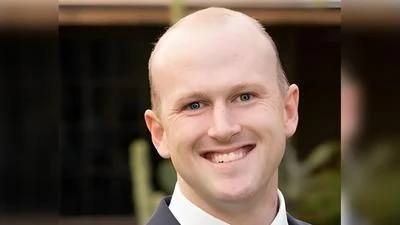PHILADELPHIA - United States Attorney Jacqueline C. Romero announced that Ricardo Carrion, a.k.a. “PR," 42, of Philadelphia, PA, was sentenced to 19 years and four months (or 232 months) in federal prison after being convicted at trial of multiple drug trafficking charges, including conspiracy to distribute controlled substances and possession with intent to distribute crack and heroin. The charges stemmed from his leadership role in supplying a drug trafficking organization operating on the 3100 block of Weymouth Street, steps from McPherson Square and just two blocks from the notorious intersection of Kensington & Allegheny Avenues in the Kensington section of Philadelphia.
This case originated from a joint investigation into the scourge of drug trafficking and overdoses in the Kensington area conducted by the U.S. Drug Enforcement Administration and the Philadelphia Police Department. After a series of search warrants were executed in 2019, the DEA developed information that the defendant was the supplier of narcotics for an organization selling heroin stamped with the word “Funeral" to advertise its potency and lethalness to addicted consumers.
Covert surveillance showed Carrion repeatedly carrying large bags into stash houses. When investigators initiated a traffic stop of a cab in which Carrion was the sole passenger, they recovered a bag containing over 3,300 flip top containers of crack cocaine. Evidence presented at the September 2021 trial showed that the defendant used code words including “lenta," which translates to “slow" in English, and “hard cola" to discuss the heroin he ordered for street dealers. Prosecutors also presented evidence that the defendant supplied thousands and thousands of doses of heroin and crack cocaine to this city block from 2018 until the DEA and PPD dismantled his drug operation.
During the trial, Carrion threatened one of the main witnesses against him. After he was convicted and the jury was dismissed, the defendant asked the court for the personal information of the jurors, a request that was immediately denied. During the sentencing hearing, prosecutors presented evidence demonstrating the defendant’s lengthy criminal record and life of drug dealing.
“This years-long drug trafficking enterprise impacted more than just this one block in one neighborhood; it left a path of destruction across Kensington and throughout Philadelphia," said U.S. Attorney Romero. “This sentence sends a clear message that, in order to halt the flow of deadly drugs into our communities, our Office and our law enforcement partners are committed to investigating and prosecuting prolific drug dealers pedaling poison to those suffering from addiction."
“Carrion ran a drug-trafficking organization in the heart of Kensington, an area in Philadelphia that has been so adversely affected by the illicit drug trade. His drug-trafficking activities were so nefarious that he distributed bags of heroin stamped “Funeral," said Thomas Hodnett, Special Agent in Charge of the Drug Enforcement Administration’s (DEA) Philadelphia Field Division. “For his conviction on multiple federal drug charges, Carrion is rightly and deservedly spending the next 20 years of his life in a federal prison cell."
This effort is part of an Organized Crime Drug Enforcement Task Forces (OCDETF) operation. OCDETF identifies, disrupts, and dismantles the highest-level criminal organizations that threaten the United States using a prosecutor-led, intelligence-driven, multi-agency approach. Additional information about the OCDETF Program can be found at https://www.justice.gov/OCDETF.
The case was investigated by Drug Enforcement Administration and the Philadelphia Police Department, and is being prosecuted by Assistant United States Attorneys Jason D. Grenell and Derek E. Hines.
Source: U.S. Department of Justice, Office of the United States Attorneys







